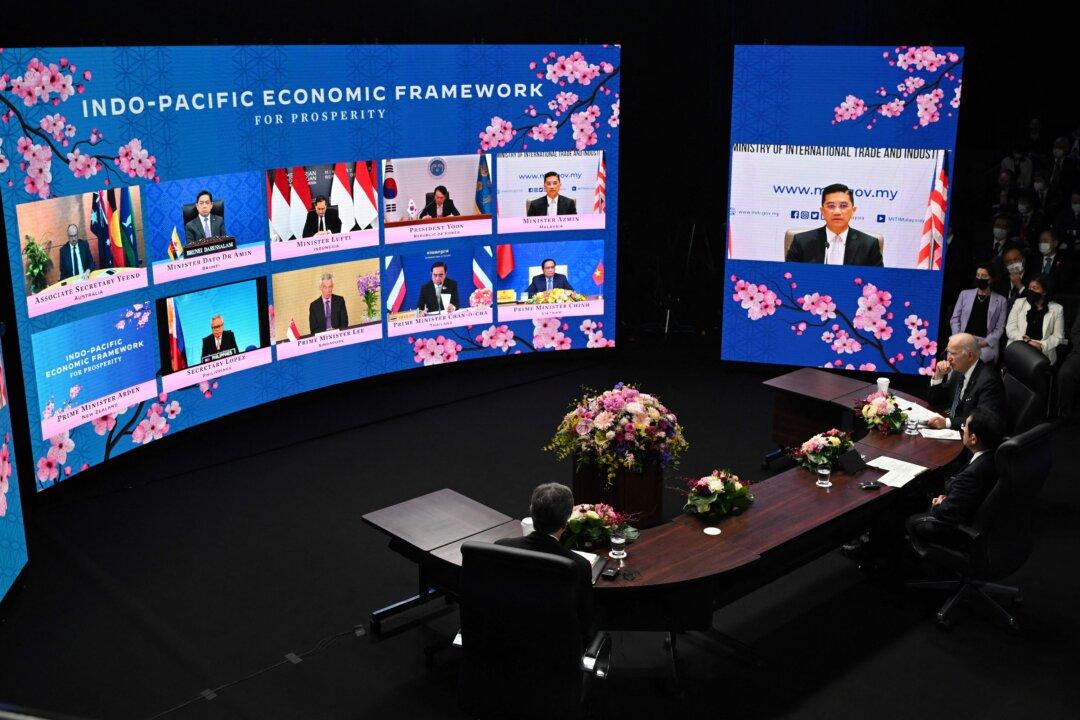The United States and 13 nations on Sept. 9 concluded the first round of in-person meetings for the Indo–Pacific Economic Framework (IPEF) with a consensus on ministerial statements for four key pillars.
The U.S. Commerce Department said the 14 IPEF member nations, which represent more than 40 percent of the global economy, will focus on the pillars of trade, supply chain resilience, clean energy, and fair economy.





